THE JAMMED TRUE STORIES OF HUMAN TRAFFICKING BLOG
The aim of this blog is to uncover and present
THE JAMMED is a feature film inspired by court transcripts about sex slavery and deportation in
This is a call for your stories.
Thursday, October 2, 2008
Stories from the New Yorker
by William Finnegan
A Mafia boss in Kiev may be living on a cut of the proceeds from your exploitation, but your personal hell will very likely start, if you’re Moldovan, with a betrayal by a friend or a relative angling for a commission. You might even be sold into prostitution by the person sleeping next to you.
“I wanted money, and I was deceived,” Lena said. (Some of the names in this article have been changed.) She was from a village in northern Moldova. She had high, thin eyebrows and a worn face. “I was nineteen. My boyfriend told me I could be a waitress in Portugal. We had been together for a year and a half.” Her boyfriend organized her trip, paid her airfare, drove her to Odessa, and put her on a plane to Lisbon. A friend of his met her flight, and told her that the waitress job had fallen through. He offered to take Lena to Dubai, where there was, he said, more work. He seemed trustworthy, and they flew there together. An Arab met them in Dubai, and the next day a woman from Uzbekistan took her to an apartment.
“That was when I realized I had been sold,” Lena told me. “Because she gave money to the Arab guy, and my passport was taken.” There were six Moldovan women already at the Uzbek woman’s place. They were working, they said, as prostitutes in discos, all paying off travel debts that the “she-pimp,” as Lena called her, claimed they owed her. Their clients were mostly Arabs and Russians. “The she-pimp was very aggressive,” Lena said. “She beat disobedient girls.” Lena was put to work.
She ended up spending a few years in Dubai, on and off the street, in and out of jail. After escaping with two other women, Lena went to the police, who arrested her. The Uzbek woman declined to hand over the passports of her ex-workers, and went on with her thriving business. Lena phoned her mother from jail but got no help. When the police released her, after a month, Lena was penniless. She went back to work as a prostitute, now freelance. Later, she fell in love with an Egyptian waiter named Salim, moved in with him, and quit sex work. But then she was arrested during a police sweep for having no documents. She was three months pregnant at the time. Making matters worse, the police registered her as a Kazakhstani, because a group of women caught in the same sweep were from Kazakhstan. It took the authorities more than a year to identify and, finally, deport her. In the meantime, she had given birth in jail. Salim never visited her, never saw his son. Lena was not able to reach him, even by phone. “Maybe he was afraid of the police,” she said quietly.
Now she was living with her grandmother and her son, who had just turned three, back in the village, and looking for work. She had still not heard from Salim. “I have given up hope,” she said. She had been helped, she said, by a psychologist at an American-funded women’s center, where I interviewed her. “We talk about what happened in Dubai,” she said. She thought that the old boyfriend who sold her to the traffickers was still around, but she had no interest in filing a complaint against him. She was twenty-four now, and had a child to raise. The New Yorker.
Rotaru fished out a file. “This is great,” she declared. “Here we have a woman, Violeta. She was trafficked to the Balkans long ago. Her husband first contacted us in December, 2006. He lives in a village in Transnistria with their daughter. The girl cannot remember her mother, but she cries for her all the time. Anyway, we have found her!”
Violeta had answered a newspaper ad offering a waitress job in Italy in 2000. She travelled as far as Albania, on forged papers, but never made it to Italy. She was sold into prostitution in Kosovo. There she worked as a stripper in bars and night clubs, and eventually escaped from her captors after a police raid. Now she was living in a shelter in Pristina, Kosovo’s capital, and wanted to come home. “This is one of the cases that make me want to jump for happiness,” Rotaru said.
Maria didn’t strike me as someone at risk for re-trafficking. The reason was partly her shattered body, but mostly it was her strength of mind. Now in her thirties, she has long red hair, big clear eyes, and a lopsided grin. She grew up in a village near Chisinau and was trafficked to Turkey in 1999. She remembers the staircase that led to the room, on the sixth floor of an apartment building in Istanbul, where she found out that she had been sold into prostitution. A woman who was with her started weeping. Maria looked to the window. There were curtains blowing in on a breeze. She crossed to the window, stepped between the curtains, and jumped. When she hit the ground, she broke both legs and both arms.
She found a job at a pizza place, where she met a reasonable man. Now they lived together, in Chisinau, with her daughter. Her boyfriend was working in construction. Maria had big plans—to buy the little house they rented and turn the front half into a shop. “I have such a desire for life,” she told me. When she first came to La Strada, Maria gratefully accepted psychotherapy but turned down an offer of clothes. “I said, ‘Please buy books for my daughter instead.’ ” She and Budeci went together to bookstores to choose titles. Maria only finished the eighth grade, but she wants her daughter to go to university. The girl was now fourteen. “She is going through adolescent crisis,” Maria said. “It’s hard for me to understand her disobedience. I was so obedient.”
I talked to Maria for hours, although she let her psychotherapist, Alina Budeci, who works for La Strada, tell me about what happened in Turkey. Talking about it was too much like reliving it, she said. Maria preferred to talk about her family, and the life that brought her to Turkey.
She had been a teen-age bride, “stolen” by a boy whom she hardly knew. “I tried to run away, but his male friends all stopped me,” she said. “If a boy steals you like this and you don’t get married, it’s a great shame to your family and you.” Her parents, who were peasants, agreed to the match.
The marriage was a disaster. Maria gave birth at eighteen, but her husband drank, beat her, and could not hold a job. “The only happy thing concerning him was my daughter. Otherwise, I hate him.” Her mother counselled her to obey her husband. “She used to say, ‘You have to listen to him, because the sword doesn’t cut the bowed head.’ That’s a saying in Moldova.” (A similar adage, which I heard more than once in Moldova, goes “The woman who is not beaten is like a house that is not cleaned.”) After several years of abuse, Maria fled. She left her daughter with her parents and headed to Odessa, where she sold rug-cleaning machines and other products on the street. Her husband pursued her to Ukraine, and she returned to him briefly, but he drank up her savings and beat her. She went next to Romania, where she found work as a waitress. She returned to Moldova to see her daughter.
Here her narrative broke off. Tears streamed down her face. “Those years when my daughter needed me the most, I wasn’t there,” she said. The troubles with her husband resumed, and Maria and her daughter went to live with her parents. She decided to get a divorce.
“Then a woman came to the village offering jobs in Turkey,” Maria said.
After a long stay in an Istanbul hospital, she returned home. “I was not really a human being,” she said. “I could not walk, could not work.” Despite several surgeries and rehabilitation, she still walks with a great deal of pain. She put off one operation she needed, she said, when she came to believe that the local doctor wanted to remove the main steel pin in her leg only because it was high-quality metal, which he could resell.




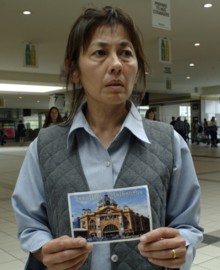
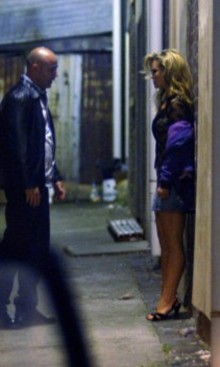
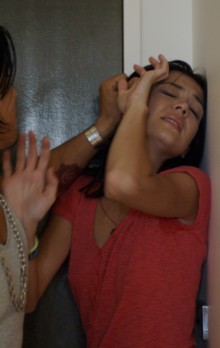
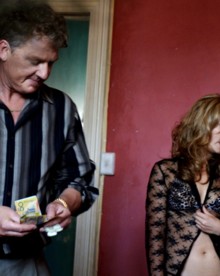
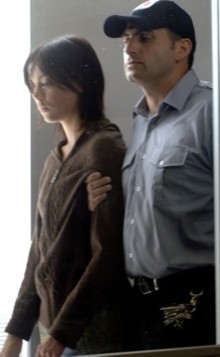
3 comments:
I went to Doll House and had the worst experience of my life. I ordered a dress 3 months before my formal and it didn’t come in. she told me the dress was customized but was told a week before my formal that they could not do it and was told to chose another dress from the shop which upset me as I had my heart set on the dress I ordered. Thank you Doll House for destroying my only formal it was the worst time.
American Singles chatting, 50000+ chatters online
Our models in Dubai see you running your fingers over her delicate body.
indian call girls in dubai hot beautiful sensual smile cute body and sexy lips will arouse your wildest desires.She will welcome you make love with her and with indian escorts in dubai erotic body in a romantic manner and really let you go in a manner and call mis aliye butt +971558396277
Post a Comment